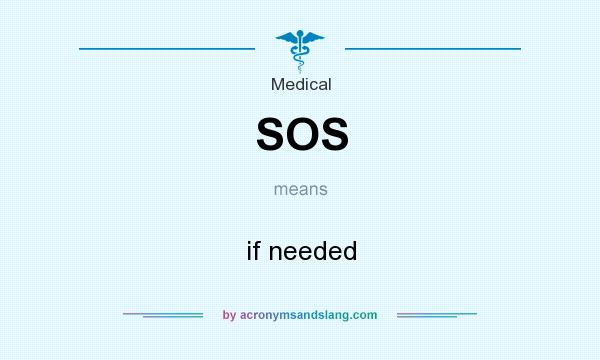


The need for a common indicator of distress was real, and the mode of communication needed to fit for long- distance communications-instead of being limited to those within sight range. Navy used NC (the International Code of Signals maritime distress flag signal), and Italy used SSSDD. However, CQD wasn’t a universal distress call. Before SOS there was CQD, with the “CQ” translating to “general notice” and the “D” an abbreviation for “distress.” But SOS wasn’t the first recognized distress signal. Instead, the distress signal that originated in the maritime community is communication used specifically for ships, based on Morse Code, that is represented by three dots, three dashes, and three more dots.ĭeveloped by Samuel Morse in 1835, Morse code’s dots and dashes signify letters of the alphabet and are used to communicate messages, such as SOS, by sending electric pulses. What does SOS stand for? It’s not “Save Our Ship” or “Save Our Souls” like you might think. What is the emergency situation they're singing about? Why did they choose to use this acronym in their song? Listen to ABBA's famous song, titled 'SOS'. Since its adoption, the phrase 'SOS' has become a well-known and widely recognised signal for distress, and is used by people around the world to signal that they need immediate assistance. It was chosen as a standardised distress signal because it could be easily transmitted and understood by people of any nationality. The phrase 'SOS' was first adopted as an international distress signal in 1908, at the International Radiotelegraphic Convention in Berlin. The letters 'SOS' are transmitted by repeating the sequence of three dots, three dashes, and three dots using Morse code.

They were chosen because they are easy to recognise and transmit. Many people believe that 'SOS' stands for 'Save Our Ship' or 'Save Our Souls', but in reality the letters 'SOS' do not stand for any specific words. It is an internationally recognised signal that can be used in a variety of situations, including at sea, on land, and in the air. The phrase 'SOS' is a distress signal that is used to signal that someone is in need of immediate assistance. What is the meaning and origin of the acronym 'SOS'?


 0 kommentar(er)
0 kommentar(er)
